Skill Critical
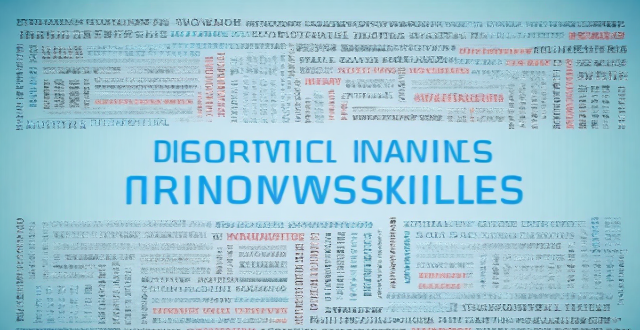
What role does critical thinking play in building a knowledge framework ?
This text discusses the importance of critical thinking skills in building a knowledge framework. It outlines four key aspects of critical thinking: identifying assumptions, evaluating evidence, analyzing arguments, and making informed decisions. By applying these skills, individuals can develop a nuanced understanding of complex issues and make well-reasoned decisions based on sound reasoning and evidence. The article emphasizes the crucial role of critical thinking in personal growth and success in various domains.

Can critical thinking training be applied to all aspects of life ?
This text discusses the importance of critical thinking and its applications in various aspects of life, including personal, professional, educational, and social settings. It emphasizes that critical thinking is a universally applicable skill that enhances decision-making abilities and promotes effective communication, creativity, and innovation. By incorporating critical thinking training into daily activities, individuals can improve their overall quality of life and contribute more effectively to society.

What is critical thinking training ?
This article provides an in-depth analysis of critical thinking training, explaining what it is and why it's important. It lists several benefits of critical thinking, such as enhanced problem-solving skills, improved decision making, boosted communication abilities, and increased adaptability. The article also offers strategies for developing critical thinking skills, such as asking questions, challenging assumptions, considering multiple perspectives, evaluating evidence, avoiding bias, practicing reflective thinking, learning from mistakes, engaging in dialogue, reading widely, and seeking feedback. Overall, the article emphasizes the importance of critical thinking training for personal and professional development.

How can I improve my critical thinking skills ?
Critical thinking is the ability to analyze and evaluate information or arguments in a clear, rational, and objective manner. Here are some tips on how to improve your critical thinking skills: 1. **Question Assumptions**: Challenge your own beliefs, be open-minded, and avoid jumping to conclusions. 2. **Identify Biases**: Recognize personal biases, look for patterns, and seek out diverse perspectives. 3. **Evaluate Evidence**: Assess credibility, consider context, and weigh pros and cons. 4. **Consider Alternative Viewpoints**: Brainstorm possibilities, explore counterarguments, and stay curious. Improving your critical thinking skills takes practice and patience, but it can lead to better decision-making, problem-solving, and communication skills.
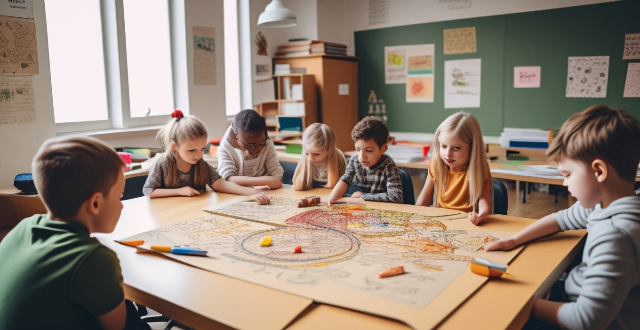
How do academic competitions help students develop critical thinking skills ?
Academic competitions play a crucial role in fostering critical thinking skills among students by encouraging problem-solving approaches, stimulating creative and analytical thinking, providing opportunities for collaboration and communication, instilling discipline and dedication, and exposing students to diverse perspectives and ideas. These contests challenge students to apply their knowledge creatively, analyze deeply, collaborate effectively, and communicate clearly, preparing them for real-world problem-solving scenarios.
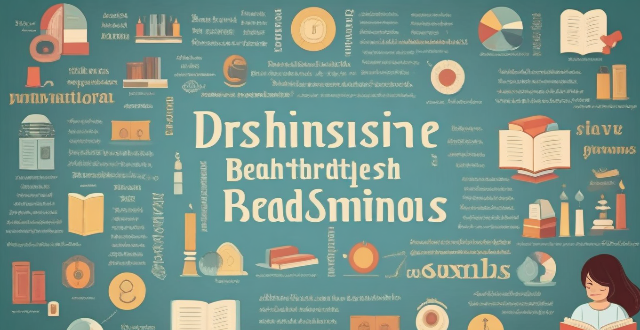
How does reading comprehension relate to critical thinking skills ?
The text discusses the relationship between reading comprehension and critical thinking skills, stating that they are closely intertwined. It explains that good reading comprehension skills enable individuals to understand and interpret written text, which in turn supports critical thinking by enhancing vocabulary, promoting inference and interpretation, encouraging evaluative thinking, and fostering open-mindedness. The text concludes that improving reading comprehension abilities strengthens critical thinking skills, enabling individuals to navigate complex challenges with greater insight and effectiveness.

How long does it take to see results from critical thinking training ?
The time it takes to see results from critical thinking training depends on factors such as individual differences, quality of training, frequency and intensity of practice, and feedback mechanisms. Short-term outcomes can be seen within 1-3 months, mid-term outcomes within 3-6 months, and long-term outcomes after 6 months or more. Consistent effort and practice are key to achieving lasting improvements in critical thinking abilities.

How can critical thinking training be incorporated into education ?
Incorporating Critical Thinking Training into Education: - Defined as the ability to analyze and evaluate information, critical thinking is crucial for effective decision-making. - Integrating it into education enhances students' learning experiences and readies them for personal and professional growth. - Strategies include curriculum design that integrates critical thinking across subjects and uses real-world applications; teaching methods such as the Socratic Method and inquiry-based learning; assessments that measure these skills; and professional development for educators. - By prioritizing critical thinking in education, students become better equipped for academic success and future careers, developing into engaged, curious, and adaptable learners.
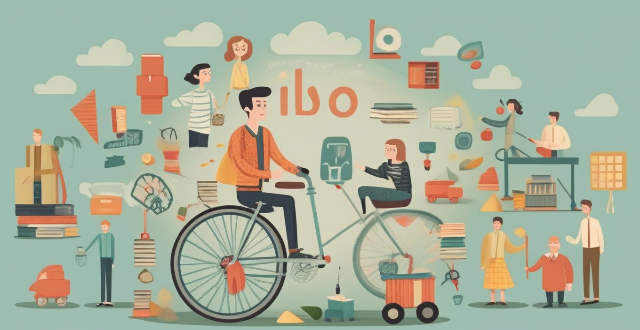
Is there a link between improved comprehension and critical thinking abilities ?
The link between improved comprehension and critical thinking abilities is explored, with a focus on how these skills are interconnected and work together to enhance cognitive abilities. The article suggests that improving one skill can lead to improvements in the other, creating a virtuous cycle of cognitive development. Techniques for improving both skills are also discussed, including reading widely, engaging in debates, and practicing active listening.
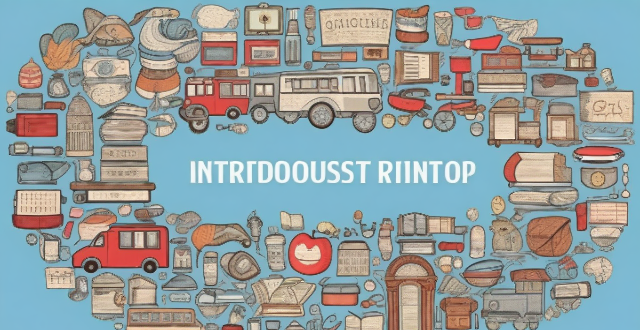
What are some common methods used in critical thinking training ?
The text introduces critical thinking training and presents four methods for improving critical thinking skills: the Socratic method, deductive reasoning, inductive reasoning, and reflective thinking. Each method is explained through an example that demonstrates how it can be applied in practice to foster critical thinking abilities.

Can nutrition affect an athlete's skill level ?
Nutrition is vital for athletes' overall well-being and performance, including skill enhancement, recovery, and injury prevention. It affects cognitive function, physical performance, and recovery, ultimately influencing an athlete's skill level. A balanced diet with proper nutrients can help athletes reach their full potential and succeed in their sports.

Can playing multiple sports help in skill development ?
Participation in multiple sports can enhance overall athleticism and skill development by improving physical attributes, reducing injury risk, developing transferable skills, and promoting mental toughness. It also offers social benefits such as expanded networks and increased opportunities for exposure. While specialization has its advantages, playing multiple sports can help athletes become well-rounded competitors.

How important is rest and recovery in skill enhancement ?
The text discusses the importance of rest and recovery in the process of skill enhancement. It highlights the cognitive and physical benefits of taking breaks, such as improved mental clarity, memory consolidation, muscle recovery, and injury prevention. The practical implications include avoiding burnout, enhancing performance, and strategies for incorporating rest into practice schedules. Overall, the text emphasizes that rest is a crucial component of long-term skill development and should be given equal consideration alongside deliberate practice and training regimens.
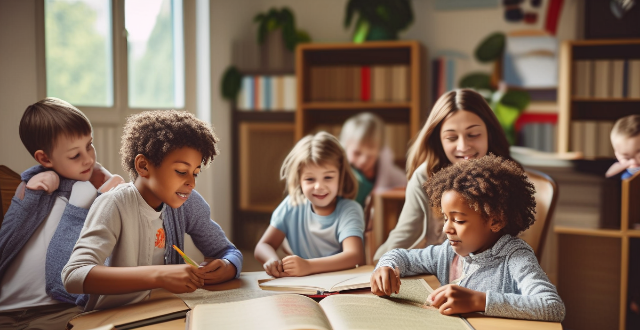
How can parents encourage creativity and critical thinking in their homeschooled children ?
To encourage creativity and critical thinking in homeschooled children, parents should create a stimulating learning environment by encouraging open-ended questions and providing varied resources. Engaging in creative activities like art and music can enhance visual-spatial skills and emotional expression. Promoting critical thinking through problem-solving tasks and family discussions can develop analytical skills. Fostering independent learning through project-based and inquiry-based learning encourages self-directed learning. Parents should also encourage questioning and curiosity, integrating technology into learning, promoting reading, and encouraging risk-taking and accepting failure to prepare their children for future challenges and successes.

How can team sports help in individual skill development ?
Team sports contribute significantly to individual skill development by improving communication skills, enhancing leadership abilities, increasing self-confidence, bettering time management, improving social skills, promoting physical fitness and coordination, providing opportunities to learn from mistakes, and fostering adaptability.

How do I choose a tennis training camp that fits my skill level ?
Choosing a tennis training camp that fits your skill level can significantly improve your game. Here are some tips on how to select the right camp: 1. Assess your current skill level by considering your experience, strengths and weaknesses, and fitness level. 2. Research different camps that offer programs specifically designed for your skill level using online directories, social media groups, and reviews from previous attendees. 3. Check the coaches' qualifications and experience, including their credentials, coaching philosophy, and track record of working with players at your skill level. 4. Consider the quality of the camp's facilities and amenities, such as well-maintained courts, access to equipment, and onsite amenities like locker rooms and dining areas. 5. Evaluate the camp's reputation and success rate by reading reviews, asking for referrals, and contacting the camp directly to learn more about their success stories.

Is speed reading a natural ability or a skill that can be learned ?
Speed reading is a topic of interest for many individuals who wish to improve their reading efficiency and comprehension. The question arises whether speed reading is a natural ability that some people possess, or if it is a skill that can be learned and developed through practice and training. While there may be some individuals who possess a natural ability for speed reading, it is generally accepted that speed reading is a skill that can be learned and improved upon through practice and training. By employing specific techniques and strategies, anyone can enhance their reading speed and comprehension, ultimately increasing their productivity and knowledge acquisition.

What are the benefits of critical thinking training ?
Critical thinking training offers numerous benefits, including improved decision-making skills, enhanced problem-solving abilities, increased self-awareness, improved communication skills, and boosted creativity. By learning how to analyze information and evaluate evidence in a clear, rational, and objective manner, individuals can make more informed decisions, find creative solutions to difficult challenges, build stronger relationships, and generate new ideas. Overall, critical thinking training can help individuals succeed in both personal and professional settings and reach their full potential.
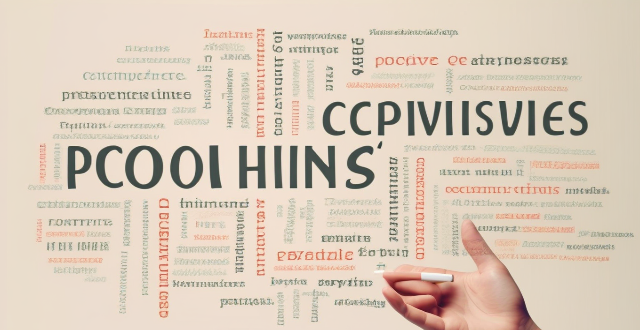
How can I develop critical thinking skills while learning about history ?
This text provides a comprehensive guide on how to develop critical thinking skills while learning about history. It starts by emphasizing the importance of understanding the basics and questioning everything. The author then suggests analyzing sources, connecting the dots, debating and discussing, reflecting and reevaluating, applying historical knowledge, practicing writing, and staying curious. By following these steps, readers can enhance their ability to think critically about various subjects and gain a deeper understanding of history.
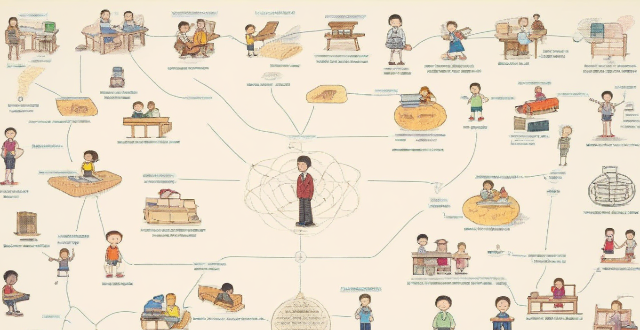
What role should interscholastic competition play in the educational experience ?
Interscholastic competition, including school sports and academic contests, is crucial for students' physical fitness, intellectual growth, and life skills development. It promotes health, skill development, academic achievement, critical thinking, teamwork, leadership, and resilience. Participating in these activities helps students develop transferable skills that are beneficial in various professions and life situations. Schools should continue supporting interscholastic competition as an essential part of the educational experience.

Why is critical thinking training important ?
In today's complex world, critical thinking training is essential for effective problem-solving, communication, objectivity, creativity, and future preparedness. It enhances decision-making, collaboration, fairness, open-mindedness, and adaptability to changes. Investing in this training leads to success and positive impacts in various domains.

How do team sports contribute to social skills development in teenagers ?
Team sports offer a plethora of benefits for teenagers, one of the most significant being the development of social skills. Here's how: 1. **Communication**: Team sports require effective communication to achieve success, such as calling plays, using body language, and non-verbal signals. 2. **Cooperation**: Playing on a team requires cooperation among players to work together towards a common goal, like passing the ball or working together on defense. 3. **Leadership**: Leadership is necessary for success in team sports, whether it's the captain leading warm-ups or a player stepping up in a critical moment. 4. **Respect**: Respect is crucial in team sports, as players must respect their coaches, teammates, opponents, and officials to succeed both on and off the field.
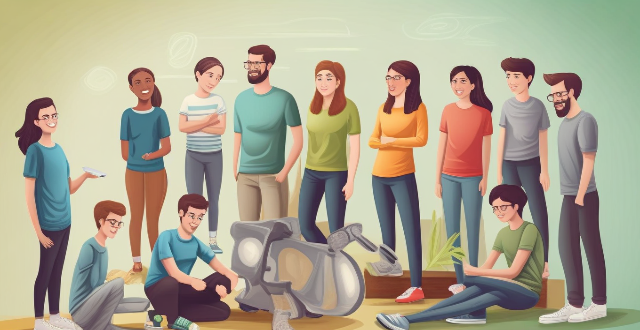
What role do teachers play in helping students prepare for academic competitions ?
Teachers play a pivotal role in preparing students for academic competitions by offering guidance, resources, skill enhancement, confidence building, practical application opportunities, and emotional intelligence development. They provide materials, help with time management, encourage critical thinking and research skills, offer positive reinforcement, facilitate networking, organize mock competitions, teach timed practice strategies, introduce stress management techniques, and emphasize teamwork and sportsmanship. This comprehensive support not only helps students succeed in competitions but also equips them with valuable lifelong learning skills.

In what ways do sports enhance self-esteem and confidence ?
Participating in sports can significantly boost an individual's self-esteem and confidence. Here are some ways how: 1. Achieving Goals 2. Overcoming Challenges 3. Social Interaction 4. Physical Health 5. Learning New Skills 6. Receiving Feedback 7. Leadership Opportunities 8. Competition Experience 9. Wearing Uniforms 10. Public Performance
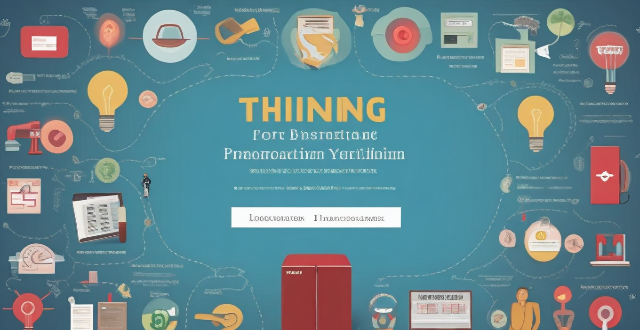
How does critical thinking training help in problem-solving ?
Critical thinking is essential for effective problem-solving. Training in critical thinking can improve problem identification, decision making, communication skills, creativity and innovation, and reduce bias and prejudice. By incorporating critical thinking training into your personal or professional development plan, you can become a more effective problem-solver and make a positive impact in your life and the lives of others.

How do extracurricular activities contribute to the development of student leaders ?
**The Role of Extracurricular Activities in Nurturing Student Leaders** **Skill Development:** Extracurricular activities offer a platform for students to acquire and refine various skills, such as communication, teamwork, time management, and problem-solving. **Confidence Building:** Involvement in extracurricular activities often leads to increased self-assurance through taking initiative and overcoming challenges. **Interpersonal Abilities:** Engaging in extracurricular activities fosters key interpersonal abilities like networking, empathy, emotional intelligence, and influence. **Real-World Experience:** Extracurricular activities simulate real-world experiences where leadership is crucial, teaching organizational skills and adaptability. **Responsibility and Commitment:** Participation teaches responsibility and commitment through accountability and dedication to practice or training. **Conclusion:** Extracurricular activities serve as a laboratory for students to experiment with leadership styles, make mistakes, learn from them, and grow into well-rounded individuals ready to take on future challenges.
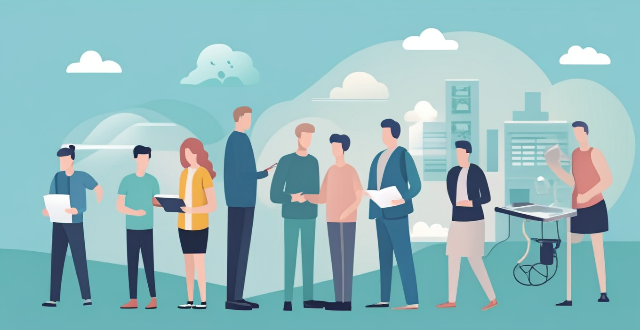
How can sports help individuals develop leadership skills and personal growth ?
Participating in sports can help individuals develop leadership skills and foster personal growth by enhancing goal-setting, teamwork, resilience, decision-making under pressure, accountability, confidence building, discipline, physical health, emotional intelligence, and social interaction.
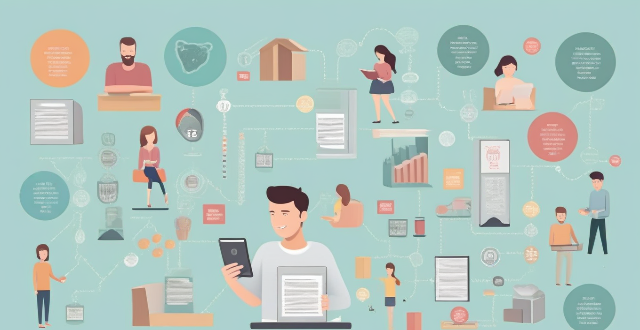
What skills do young people need to effectively participate in climate action ?
The article discusses the various skills that young people need to develop in order to participate effectively in climate action. These skills include scientific literacy, critical thinking, communication, collaboration, advocacy, practical skills, financial literacy, emotional intelligence, and digital literacy. The article emphasizes that having a blend of these skills will enable young people to contribute meaningfully to efforts aimed at mitigating the effects of climate change.

How can we prevent communication interference during critical missions ?
To prevent communication interference during critical missions, organizations should use reliable communication systems, minimize environmental factors, train personnel adequately, test equipment beforehand, and use clear and concise language. These strategies can help ensure successful completion of missions by minimizing the risk of communication disruptions.

Are tennis training camps effective for children and teenagers ?
Tennis training camps can be an effective way for children and teenagers to improve their skills and develop a love for the sport, depending on factors such as quality of instruction, level of commitment, and overall environment. Benefits include skill development, learning new techniques, building confidence, and socializing with other young players.